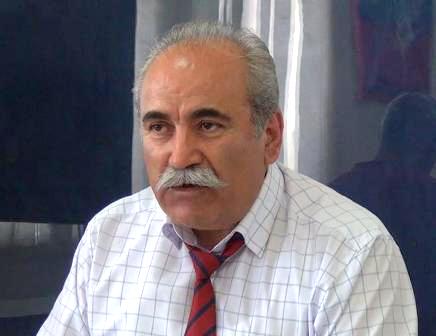 If Turks hope to enjoy unhampered trade with Central Asia all the way to the Chinese border, then Armenians in Artsakh should enjoy the same unhampered trade through Turkey all the way to France or the United Kingdom.
If Turks hope to enjoy unhampered trade with Central Asia all the way to the Chinese border, then Armenians in Artsakh should enjoy the same unhampered trade through Turkey all the way to France or the United Kingdom.
In recent months, however, Turkish president Recep Tayyip Erdoğan and Azerbaijani President Ilham Aliyev have sought to redefine the clause in two important ways. Firstly, they interpret it as granting them a corridor that will bisect sovereign Armenian territory. Secondly, they ignore the first sentence that seeks to unblock economic and transport connections across the region. The Biden administration should make clear such reinterpretation is unwarranted and illegitimate.
Initially, there was optimism among Turks and in Central Asia that vehicular traffic from Nakhchivan, an Azerbaijani exclave separated from the rest of Azerbaijan by Armenia’s Zangezur corridor, could revive the moribund economy in eastern Turkey and expand trade and tourism across Central Asia. Aliyev’s cocky belligerence soon quashed that possibility. “The creation of the Zangezur corridor fully meets our national, historical, and future interests. We will be implementing the Zangezur corridor, whether Armenia wants it or not,” he said earlier this year on Azerbaijan’s state-controlled television. That Secretary of State Antony Blinken certified that Azerbaijan had committed itself to diplomacy and eschewed military force just two days after Aliyev made his threat demonstrates either State Department incompetence or a deliberate violation by Blinken of the Freedom Support Act.
Both President Joe Biden and Blinken have repeatedly declared that “diplomacy is back,” but when it comes to the South Caucasus, it is absent. This is unfortunate because there is a real opportunity to promote peace within the region and advance American interests. A common refrain among the State Department’s unofficial Turkey lobby and beneficiaries of Azerbaijan’s “caviar diplomacy” is that Azerbaijan is a better ally to the United States than Armenia because of Yerevan’s ties to both Moscow and Tehran. Put aside that, in reality, Azerbaijan’s ties to Russia and Iran have grown exponentially over recent years. If Washington’s goal was to scale back Armenia’s ties to Russia and Iran, then the best way forward would be to pressure Turkey and Azerbaijan to lift their double blockade of Armenia in order to reduce Armenian dependence upon Russia and Iran. Turkey should open its borders to Armenian trade as should Azerbaijan. While Turkey hopes its trucks could drive through Zangezur to Armenia, Armenian vehicles should likewise be able to drive from Yerevan to Istanbul. If Turks hope to enjoy unhampered trade with Central Asia all the way to the Chinese border, then Armenians in Artsakh should enjoy the same unhampered trade through Turkey all the way to France or the United Kingdom.
Michael Rubin is a resident scholar at the American Enterprise Institute, where he specializes in Iran, Turkey, and the broader Middle East. He also regularly teaches classes at sea about Middle East conflicts, culture, terrorism, and the Horn of Africa to deployed U.S. Navy and Marine units. You can follow him on Twitter: @mrubin1971.







